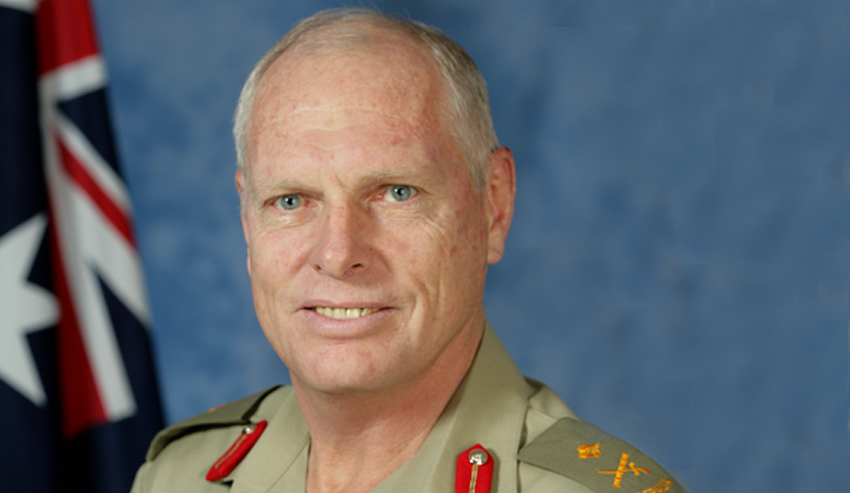Major General Jim Molan has called for Australia to implement a tailor-made strategy for defence and security, due to dramatic changes in the global defence climate.
To continue reading the rest of this article, please log in.
Create free account to get unlimited news articles and more!
National security has traditionally focused on “hard power” concepts of conventional economic and military power, espionage and intelligence gathering. However, in an increasingly challenging global environment, does a true national security strategy require a more holistic response?
National security in the contemporary context is best defined by US academic Charles Maier: “National security ... is best described as a capacity to control those domestic and foreign conditions that the public opinion of a given community believes necessary to enjoy its own self-determination or autonomy, prosperity and wellbeing.”
Australia has long had a tough relationship with the “tyranny of distance”. On one hand, the nation’s populace has treated it with disdain and hostility, while Australia’s political and strategic leaders have recognised the importance of geographic isolation.
The rise of Indo-Pacific Asia means the tyranny of distance has been replaced by a “predicament of proximity”. China, India, Indonesia, Thailand, Japan and several other regional nations are reshaping the economic and strategic paradigms with an unprecedented period of economic, political and arms build-up, competing interests and rising animosity towards the post-World War II order Australia is a pivotal part of in the region.
Senator Molan joined Defence Connect podcast host Phil Tarrant to dissect his recent paper on national security strategy for the ANU’s Centre of Gravity initiative, in which he seeks to address the above issues.
Senator Molan also explained how current Australian policy falls short, why an established system would make the nation a more self-sufficient and therefore better ally, and who would be responsible for executing such a strategy.
Can you run us through the paper that you wrote for the ANU?
Molan: I was invited to write for the ANU and its Strategic and Defence Studies Centre, and they have a Centre of Gravity series of papers.
And they choose one, the papers are about 4,000 words long, and you can choose your own topic. And they asked me if I’d write on something and I said, “Yes, I’d write on my favourite subject,” which was national security strategy.
I titled it, “Regardless of the question, the answer is a national security strategy”. And I was always trying to get through that this is probably the single most important thing that a nation in 2019, that Australia in 2019, should be doing. And I carried it from there down to look at what a national security strategy is, not the final answer that comes out of that. That’s for the government to do and only the government can do it. But also the role of Parliament in oversighting Defence because I think we have a severe problem in that area.
Can you explain Australia’s current situation with such a strategy?
Molan: We don’t have a national security strategy. We have a series of individual strategies, such as a defence white paper and the classified papers that sit behind it. We have cyber papers, we have diplomatic papers, we have plans for food resilience, we have plans for water resilience, we have an inquiry going into liquid fuels.
All of these things are part of our national security. And for so long now, for the last 75 years, since the end of World War II, we’ve been very, very fortunate because our great and powerful friend dominated the world. And the US, in its ability to do what it could do across the world, meant that we really didn’t have to do much thinking.
So, we could put out a defence white paper and that defence white paper would be purely a defence white paper. But the world, the Australian world, thought that it was a national security strategy, well it wasn’t. And we’d get a foreign affairs white paper and all of these things are good, but the overarching strategy was not there.
And if our defence white paper is not linked into our liquid fuels, into our energy for defence industry, into our food resilience and water resilience, and our cyber and everything else, then we’re wasting our time in the sub-strategies. And that’s the point that I make in relation to a national security strategy. Other countries have them and they’re very effective in other countries.
Who is responsible for the building of a national security strategy?
Molan: We have had a national security adviser in the way that the Americans have had them. A person nominated as a national security adviser in the past.
But they had no staff, they had no mechanism behind them, they were subordinate to a bureaucrat and none of that works. If you look at the way the Americans do it with John Bolton, when the president of the United States is talking to our Prime Minister, he has sitting on one side of him, Bolton, as the national security adviser and on the other side he has his secretary of state.
And on those occasions, that’s the inputs that you should get as a national leader. Now we haven’t needed to do it in the past, so it’s not a fault of any of the governments in the past, but our world has changed dramatically and now we need to take a totally different view of how we develop strategy, and how we integrate the aspects of this nation under that strategy.
You can listen to the full podcast here.

 Login
Login







